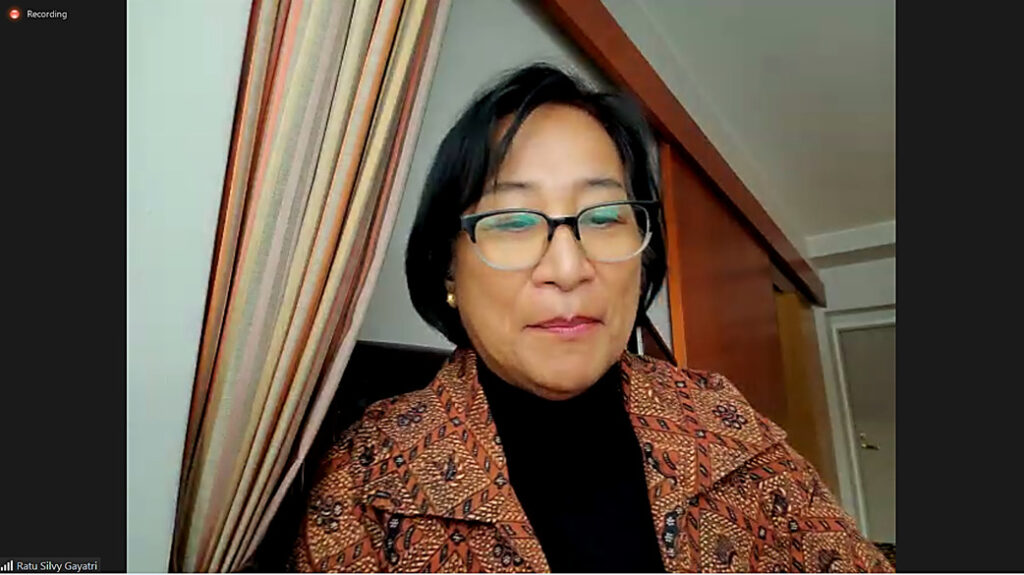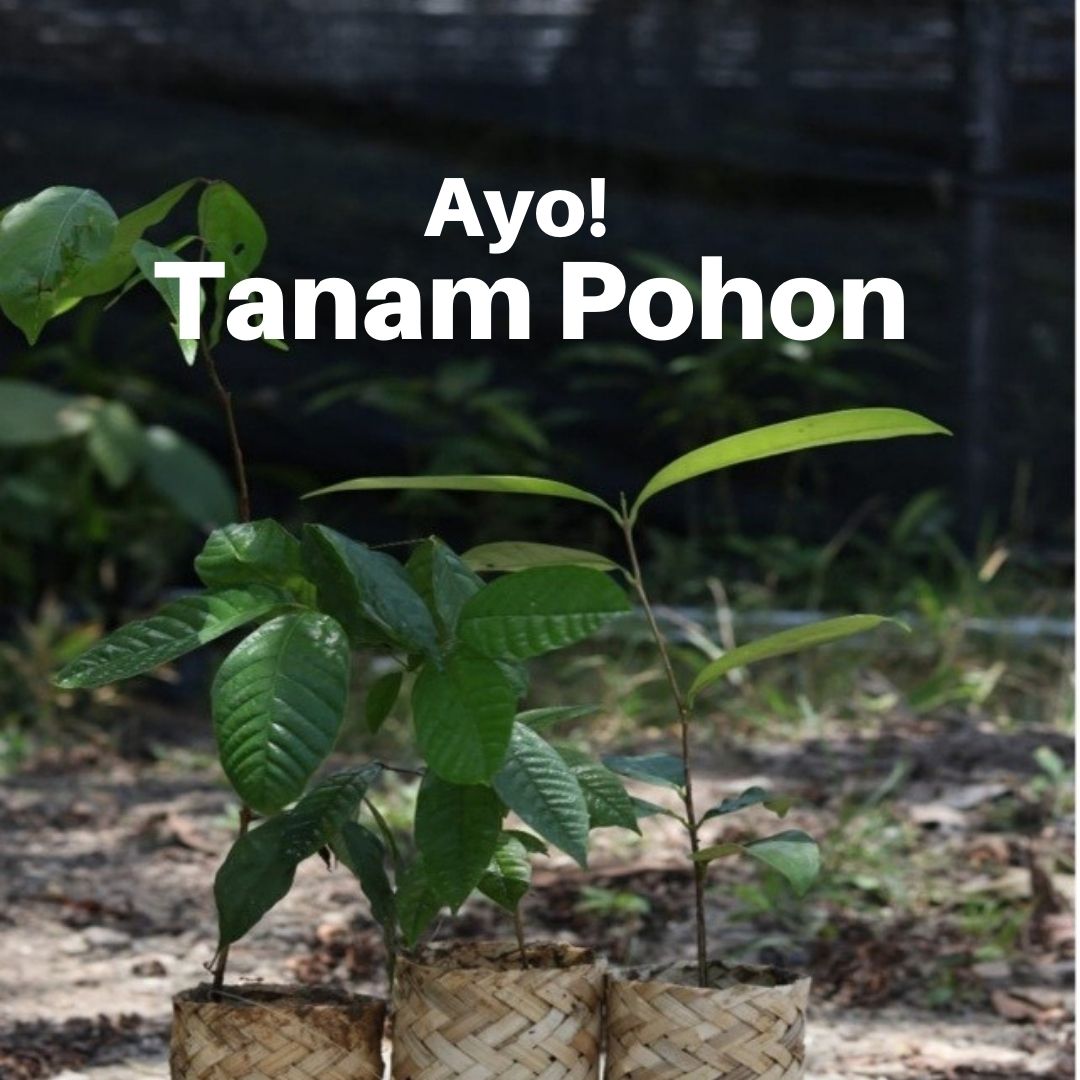Stakeholders in forestry-related sector in Indonesia remain upbeat that the archipelago nation could boost its market share for wood products in the European Union market, despite rules for deforestation-free products are on its way to be implemented in the next few years.
In a virtual discussion held on Friday, 25 February 2022, Andri Hadi, the Ambassador of the Republic of Indonesia to the Kingdom of Belgium, the Grand Duchy of Luxembourg, and the European Union, informed that the European Union (EU) Commission has submitted the proposal of Deforestation-free Supply Chain (DFSC), which will affect a number of Indonesian commodities, including wood products.
The proposal mentions that commodities entering the EU must be produced in accordance to the deforestation-free product, with the cut-off date as of 31 December 2020.
There will be a due diligence process, which include a process to provide geo-coordinates of timber-related products, compliance assessment, and deforestation mitigation process.
The due diligence will involve assessing products based on the country of origin and a benchmarking process, where products are classified into low-risk, medium-risk or high-risk category.
The DFSC proposal is expected to be fully implemented in early 2024 or by the end of 2023 at the latest.
However, before being implemented, the proposal will have to go through various public discussions.
This will be the second largest consultation process in the history of Europe by involving 1.2 million respondents.
In response to this, various stakeholders in forestry and timber-related industry in Indonesia held a virtual discussion on Friday, inviting representatives from the government, forestry concessionaires, and forestry-related industry players.
The discussion was organized by the Indonesian Communication Forum of Forestry Community (FKMPI), which consist of the Indonesian Forest Concessionaires Association (APHI), the Indonesia Pulp & Paper Association (APKI), the Indonesian Wood Panel Association (APKINDO), the Indonesian Furniture Industry & Handicraft Association (ASMINDO), the Indonesian Sawmill and Wood Working Association (ISWA), the Indonesian Light Wood Association (ILWA) and the Indonesian Furniture and Craft Industry Association (HIMKI).
The discussion invited senior officials from a number of ministries in Indonesia, including the Ministry of Foreign Affairs, the Ministry of Environment and Forestry, and the Ministry of Industry.
The Indonesian Ambassador to Belgium, Luxembourg and the European Union Andri Hadi and the Indonesian Ambassadors to Finland and Estonia Ratu Silvy Gayatri participated in the discussion, along with representatives from Indonesian embassies in Helsinki, Copenhagen, Madrid, London, Berlin, and The Hague.
There were also top officials from Indonesia Trade Promotion Center in Hamburg, Barcelona, Budapest and Milan.

Indonesia’s point of views
Panelists at the virtual meeting discussed about the Timber Legality Assurance System (TLAS), which has been recognised and transformed into a wood sustainability certificate.
TLAS is expected to serve as an advantage for Indonesian products to penetrate the European Union (EU) market.
At the discussion, Ambassador Andri explained that DFSC, which in the coming years will be applied will indirectly burden exporters and producing countries.
He said that Indonesia’s stance on the proposal is quite firm.
“The DFSC is a discriminatory proposal with a number of products from EU are not listed,” he added.
The proposal, he said, is not aligned with WTO policies.
If implemented, it would result in higher costs, which could hit small businesses from producing countries.
His embassy, he said is doing an intensive communication with the EU to respond to the proposal.
“We are also exploring and gathering information from importers with regards to the commodity from Indonesia,” he said.
Indonesia has expressed its disappointment against six commodities listed in the DFSC proposal as it will impact its leading export products, including timber, palm oil, coffee and cocoa.
Indonesia has previously agreed to implement the Forest Law Enforcement Governance dan Trade (FLEGT) and Voluntary Partnership Agreement (VPA) with EU since 2016.
Indonesia is the first country that requires FLEGT License certification for its producers.
Ambassador Andri said that the FLEGT VPA should serve as the standard to ensure wood products entering the EU are sourced from sustainable sources.
The FLEGT certified products should not perform due diligence.
“If there is a weakness in the system, we should strengthen the FLEGT,” he said.
Moreover, the ambassador pointed out that there are still EU’s responsibilities that have not been fully carried out regarding the FLEGT and VPA.
For example, the issue of providing market incentives for wood products with FLEGT license is not materialized yet.
Products from competing countries can easily dominate the EU market and it can be shown on the market share in EU.
The EU market, worth $120 billion, is currently controlled by China.
Indonesia’s market share in the EU is ranked 10th, lower than Vietnam, which does not requiure FLEGT license to its producers.
The business opportunity of forest product
Ambassador Andri said market shares of Indonesian products in the EU have not been optimized, despite exports of wood products have been boosted since the FLEGT VPA was implemented.
The FLEGT VPA was established in 2016 and Indonesia’s revenue from wood-related product exports were recorded at 813.5 million euros that year.
The figure rose and reached 1.07 billion euros in 2021.
“Wood products such as flooring, furniture, paper, plywood have shown an increase of more than 20 percent in 2021 compared to 2022,” he said.
Ambassador Andri said that many potential products can be optimized.
“There are 44 HS codes for wood products are included in the FLEGT VPA. We observe that 19 HS codes out of 44 HS code are still potential. We can explore and increase our exports,” said Ambassador Andri.
He mentioned that one of them is wood products for fuel needs (in the form of wood chips, pellets or other forms).
It happens because some of EU countries still use biomass fuel to replace coal.
Impacts of Russia-Ukraine conflict
Ambassador Andri explained that the conflict of Russia and Ukraine could has an impact on Indonesia’s wood product exports.
The conflict has caused the gas prices increased, which means that many countries need alternative fuels. Meanwhile, Russia has also announced to stop exporting the raw timber which is impacted to the wood processing industries in the EU.

“The reduced supply of wood from Russia is an opportunity to be filled with Indonesian wood products,” he said.
Ambassador Andri mentioned that the Covid-19 pandemic could still be seen as an opportunity to make a profit. The demand for furniture, home office and kitchen products have been increasing when the work from home policy was implemented.
Finland market
The Indonesian Ambassador to Finland and Estonia Ratu Silvy Gayatri revealed that there are huge opportunity to expand the market in Finland.
“The market for forestry wood products in Indonesia is still widely open. We can make various innovative efforts to explore the potential of the product and promote it in various events in Finland,” said Ambassador Ratu Silvy.
Finland as one of the most developed forestry industrial countries in the world can be seen as a potential market for Indonesia. He also informed Finnish companies that are interested in importing forestry products from Indonesia.
Ambassador Ratu Silvy invited Indonesian wood industry business to participate in the business partnership opportunities through the Matchmaking Service (https://finnpartnership.fi/en/matchmaking-registration/).
The chairman of FKMPI Indroyono Soesilo explained that Indonesia’s forex revenue from the forestry sector recorded a positive trend in early 2022.
Total exports of wood products in January 2022 reached $1.23 billion, an increase of 28.2 percent compared to January 2021.
The performance of European Union and UK markets has also shown a positive trend, as exports in January 2022 recorded an increase of 29.69 percent with a value of $104.1 million compared to $80.2 million in 2021.
“FKMPI is open to work together with stakeholders to continue increasing Indonesian’s exports of wood products to the EU in the midst of the current challenging situation,” said Indroyono who is also the Chairman of The Association of The Indonesia Forest Concessionaires (APHI).***




